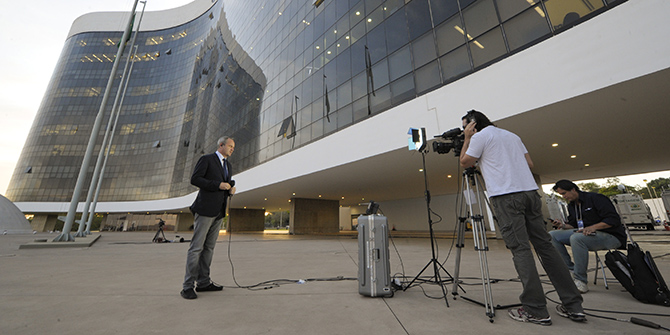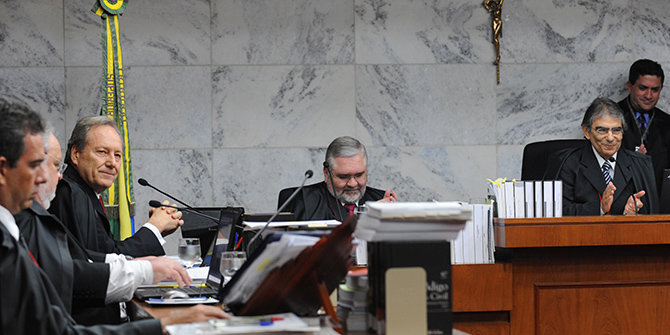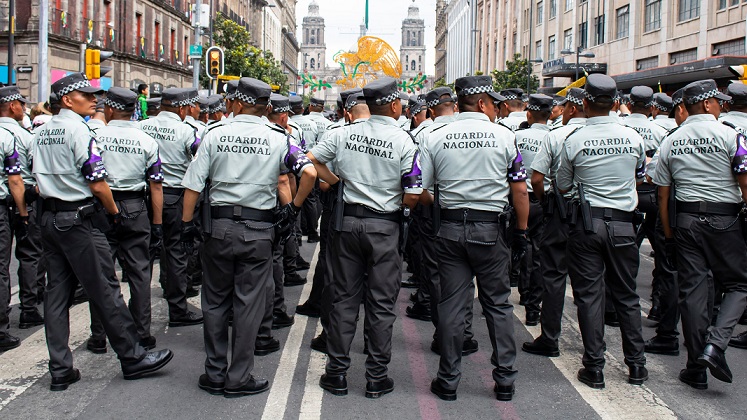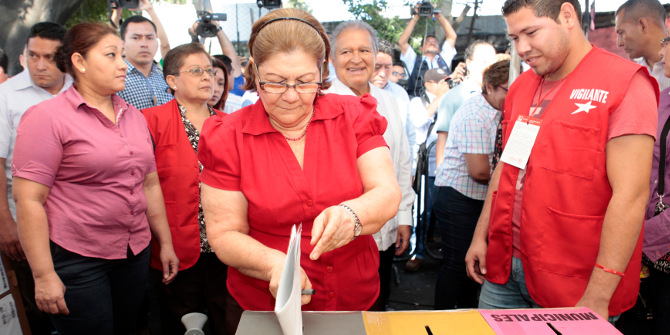 The discretionary decisions and interminable in-fighting of Brazil’s vast and intricate judicial system have significant consequences for election outcomes, and 2018 is no exception, writes David Lehmann (Federal University of Bahia).
The discretionary decisions and interminable in-fighting of Brazil’s vast and intricate judicial system have significant consequences for election outcomes, and 2018 is no exception, writes David Lehmann (Federal University of Bahia).
The Brazilian electoral system is regulated by the Superior Electoral Court (TSE), itself presided over by a supreme court justice and staffed by a weighty electoral bureaucracy. Some of the rules governing the electoral process, especially those concerning campaign finance, have been made by the TSE independently of particular legislation, and their effects can be seen in election outcomes, most notably increases in the turnover of deputies and the number of women and wealthy individuals elected.

A sprawling judiciary for a sprawling electoral system
The TSE has 871 technical and admin staff, 5778 judges and lawyers, and even a dedicated prosecution service (the MPE). It distributes state funding to parties in accordance with a legally established formula – a subsidy worth an estimated US$540 million up to the first round of this year’s election.
The state has also “contributed” R$1 billion in lost taxes on advertising revenue that TV and radio stations forego due to the free airtime allocated to all candidates, sometimes in perfunctory ten-second slots.
Indeed, the state has become the main source of campaign funding since the Federal Supreme Court (STF) banned corporate campaign contributions in September 2015, and this year’s overall expenditure of $6.4 billion in inflation-adjusted reais is less than half of what was spent in 2014.
The electorate numbers some 146 million. There are 29,000 candidates for president, federal senator and deputy, state governor and state deputy, which is 3,000 more than in 2014. They compete for 513 seats in the Chamber of Deputies, 54 in the Senate, and 1059 in state legislatures.
Local elections are held separately, and are also a major exercise: in 2016 there were 470,000 candidates for 69,000 positions in 5,570 municipalities, all of whom receive salaries.
Implications of the ban on corporate contributions
The Federal Supreme Court’s decision on corporate donations speaks to the broad powers it possesses in interpreting the constitution, while discussions around the move also illustrate the freedom enjoyed by Brazilian judges in making political statements.

The decision itself was justified principally on the basis that corporate donations introduce unfair competition into elections, though a small number of judges mentioned the risk that donations might enable donors to influence political decisions and especially government contracts.
One of the dissenting judges, Gilmar Mendes, made what in other countries would be regarded as extraordinary statements: he claimed that the entire proposal was a Workers’ Party (PT) “coup” designed to protect an advantageous position achieved through corrupt schemes that have left the party with enough money to fund every election through to 2038.
Folha columnist Bruno Carazza explains that the decision led cash-strapped parties to seek out candidates with name recognition or means of their own, leading in turn to a 50 per cent increase in millionaires and religious figures amongst the candidates. Candidates with a declared wealth of a million reais (c. US$250,000) had a very high success rate: 241 of the 1041 standing were elected. There will also now be 20 deputies with links to the armed forces and the police – i.e. retired officers.
Needing to get a maximum of votes to qualify for funding next time around, parties opened their lists to just about anyone. As a result, new entrants account for 40 per cent of congressional candidates and 14 per cent of those elected. The number of women rose from 51 to 77 thanks in part to the TSE’s stipulation that 30 per cent of state resources should go to women’s campaigns, even if most of it went to wives, daughters, and granddaughters of well-known politicians with established name recognition. The number self-identifying as black, brown (pardo), Indian, or Asian (amarelos) also rose from 103 to 128.
The improvisations and in-fighting of an incomprehensible judiciary
Other judicial interventions further underline the impact and influence of the Supreme Court and its members’ interactions.
When the Folha de São Paulo newspaper was prohibited from interviewing former president Lula da Silva in prison just days before the first round, the decision was reversed via an injunction from Supreme Court Justice Lewandowski on the basis that journalists routinely interview people in jail and to deny permission would be discriminatory. But Lewandowski’s decision was quashed by his colleague Judge Fux in a decision described by Folha’s lawyers as the “most serious act of censorship since the military regime” (which ended in 1985).

Apart from the procedural violation and the undignified public row which followed, Fux’s justifying statement is of particular interest. He said that his decision fell within the scope of free expression of ideas, a principle which protects the functioning of democracy. Enunciating his homespun political theory, he said that “the circulation of misinformation among the electorate undermines the ability of the democratic system to choose political leaders of suitable quality.” In essence, Fux empowered himself to decide what constitutes disinformation, implying that instead of protecting freedom of expression the judiciary should regulate it according to his own notions of accuracy and freedom.
His decision was upheld by the president of the court, pending reconsideration in full session, but since it came just a few days before the first round, the timing raised suspicions that Fux’s aim was to prevent the interview from taking place. The newspaper reported that Fux’s decision had caused serious disquiet and intense discussion amongst the other justices, for reasons both procedural and substantive. There is no higher instance which could investigate whether Fux or the court’s president exceeded their powers.
Two other events have given rise to suspicions of bias in different branches of the judiciary and the Federal Prosecution Service (MPF).
In one case, just a few days before the election, the celebrity judge in charge of the Lava Jato enquiry, Sergio Moro, released evidence received from Lula’s former finance minister Antonio Paolocci via a plea bargain. The material was not new, and its release appeared to have little bearing on legal proceedings, but it painted Lula in a dim light and so could only damage the PT. Why was it released at such a sensitive time?
In another example, damaging this time to Bolsonaro, the MPF announced that it was investigating his chief economic adviser and potential finance minister Paulo Guedes for improprieties in contracts to manage the assets of state-owned pension funds (in 2009), an area in which Guedes has extensive business interests. The case is old and will take a long time to go before a judge, but why make the announcement at this sensitive time?
Other surprising decisions have been reported by the Regional Electoral Court in the state of São Paulo, this time concerning church-state relations.
In August 2018, the court removed one federal and one state deputy from their seats because a religious leader had called on his followers to vote for them, and in another case it disqualified a candidate because a pastor had handed out supportive leaflets outside a church. There appears to be little constitutional or legal basis for these decisions, and although they may be reversed on appeal, the election will by then be over. The real legal issue for churches in a state based on strict secularism is tax exemption: in theory, this exemption can be lost if churches get involved in politics or for-profit activities. In Brazil as in the United States, however, this rule has never been properly enforced.
Muted reactions to a serious problem
To date, politicians of all stripes have accepted judicial intervention without protest. Even the case against Lula, dismissed by PT leaders as hopelessly flimsy, has not led to open and sustained accusations of political bias against Judge Moro. Despite being a serious infraction, even his release of an illegally taped conversation between Lula and Dilma in March 2016 led only a light reprimand.
Yet, with the 2018 elections already troubled by widespread disaffection and an incredibly fragmented landscape of parties and candidates, interest-led in-fighting and uneven application of the law by Brazil’s judiciary is particularly unwelcome.
Notes:
• The views expressed here are of the authors and do not reflect the position of the Centre or of the LSE
• Please read our Comments Policy before commenting






I would truly like to hear your thoughts on this topic now that Sergio Moro has accepted Bolsonaro’s invitation to the Ministry of Justice!